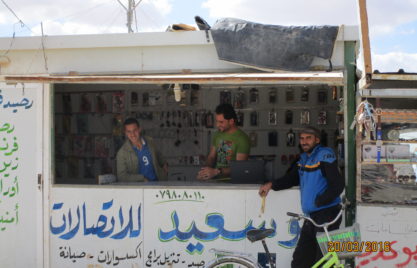Recognizing the importance of financial inclusion for financial sector stability and economic growth, the Central Bank of Jordan (CBJ) is expanding its regulatory umbrella to supervise microfinance. The newly assembled team of the Credit Bureau and Microfinance Supervision group, located at the Banking Supervision department, came together with GIZ advisors to elaborate on the way forward.
What does regulating and supervising microfinance have to do with financial inclusion? A stable microfinance sector that adheres to client protection principles is a prerequisite for unbanked people to trust and participate in the formal financial system. Beyond that, a more inclusive microfinance system contributes to financial system stability, a financial supervisor’s major – if not primary – policy objective.
Bearing in mind the current state of affairs in Jordanian’s access to formal financial services, the CBJ experts underlined the importance of microfinance. Given that three out of four adults in Jordan are financially excluded and up to a third lives below the national poverty line, according to World Bank data, the microfinance sector holds great potential in reaching out to remote areas and the unbanked.
The workshop participants agreed that a proportionate and holistic regulatory and supervisory approach is needed, however, to ensure efficiency and a level-playing field among MFIs of different sizes that in parts have been registered under different laws. CBJ supervisors further reinforced the importance of a light prudential framework consisting of both prudential and non-prudential aspects. Such an approach would thus consider the MFIs’ financial soundness (e.g. portfolio quality) besides the conduct of business. In the forthcoming months, efforts will therefore focus on the development of the single instructions for these particular areas as “you can’t supervise what you don’t regulate.”
The CBJ and GIZ representatives concluded the session with updating the joint plan for the regulatory and supervisory framework for microfinance, being confident that it will materialize for the good of financial sector stability and financial inclusion.
By Atilla Yuecel



